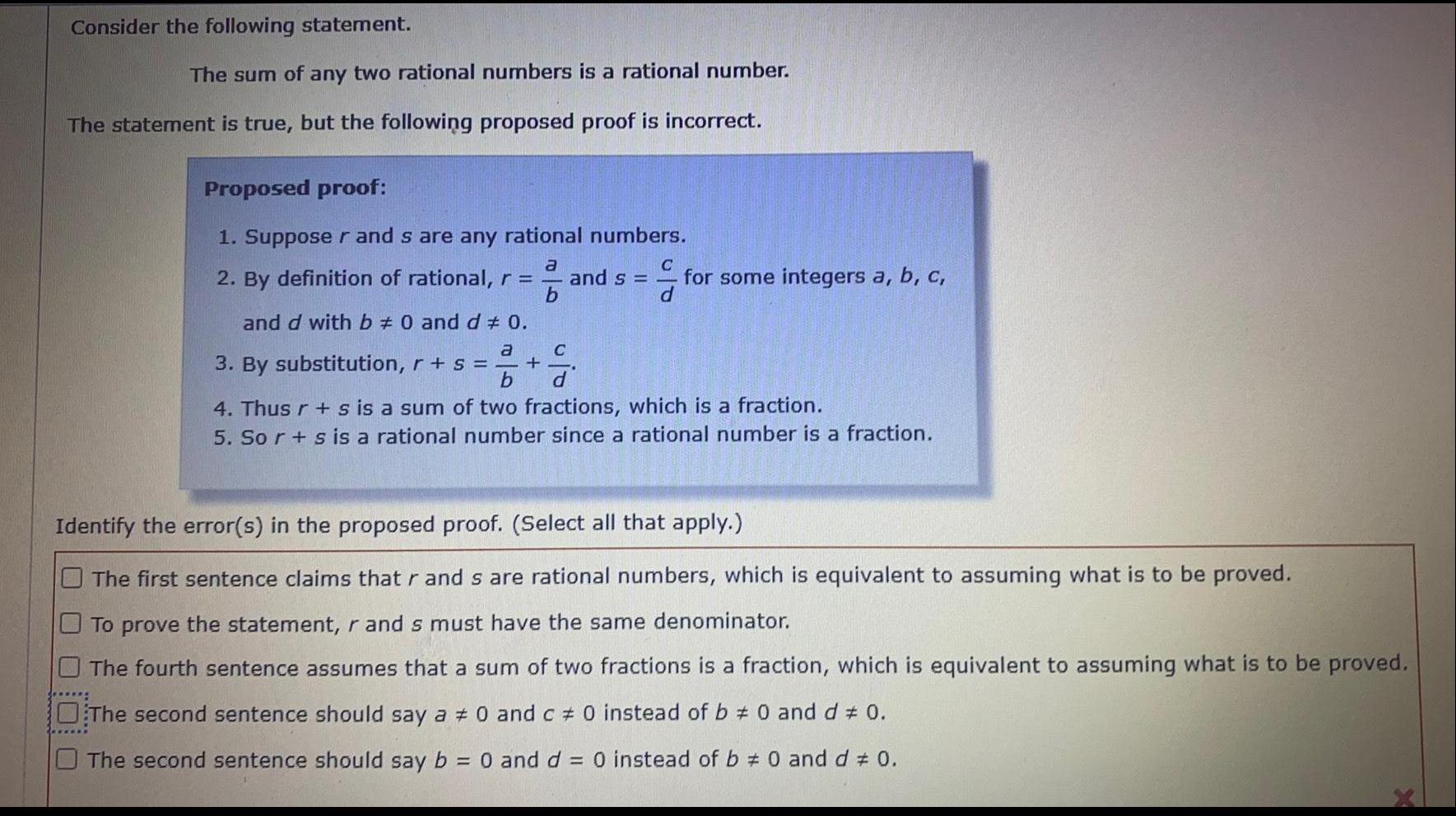Consider the following statement. The sum of any two
Last updated: 7/10/2022

Consider the following statement. The sum of any two rational numbers is a rational number. The statement is true, but the following proposed proof is incorrect. Proposed proof: 1. Supposer and s are any rational numbers. 2. By definition of rational, r = a b C and s = for some integers a, b, c, d and d with b #0 and d# 0. a C 3. By substitution, r + s = + b 4. Thus r + s is a sum of two fractions, which is a fraction. 5. Sor+s is a rational number since a rational number is a fraction. Identify the error(s) in the proposed proof. (Select all that apply.) The first sentence claims that r and s are rational numbers, which is equivalent to assuming what is to be proved. To prove the statement, r and s must have the same denominator. The fourth sentence assumes that a sum of two fractions is a fraction, which is equivalent to assuming what is to be proved. The second sentence should say a # 0 and c# 0 instead of b # 0 and d # 0. The second sentence should say b = 0 and d = 0 instead of b = 0 and d = 0.